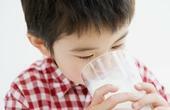Milk

The average consumption of milk and various dairy products by Russian residents is about 200 - 250 liters per year per person, which leads to the conclusion that these types of foods occupy a significant place in the diet of Russians. Consumption of dairy products in terms of energy gives up to 400 kcal per day and makes up 20% of the daily calorie intake of women and about 16% of the daily caloric intake of men. The main contribution to the energy value of milk is made by the saturated milk fat contained in it, which ensures the supply of more than 50% of energy.
In milk the most valuable components are: first of all protein, followed by milk sugar( or lactose), vitamins( mostly fat-soluble), as well as various minerals and trace elements. As for the content of milk fat, its composition is expressed, first of all, saturated fatty acids, which in themselves are not obligatory and irreplaceable. In addition, milk fat also acts as a carrier of cholesterol, which is the cause of the development of atherosclerosis and various cardiovascular diseases with age.
A significant contribution to the prevention of obesity and other nutritional diseases seems to reduce the calorie content of dairy products by at least 25-50%.In this case, it is only a partial withdrawal of milk fat, which is saturated and of little value in terms of healthy nutrition. All other elements, such as protein, vitamins, minerals and trace elements in low-calorie dairy products are preserved, which causes the preservation of nutritional value and the benefits of these foods for human health. In developed countries, the share of production of low-calorie, low-fat dairy products is over 90% of all dairy products. If a person has at least the slightest problems with excess body weight, then he should use low-calorie foods, especially since in our time there is a huge selection of them.
Used materials:
Shilov VN, Mits'yo VP«Healthy food»
